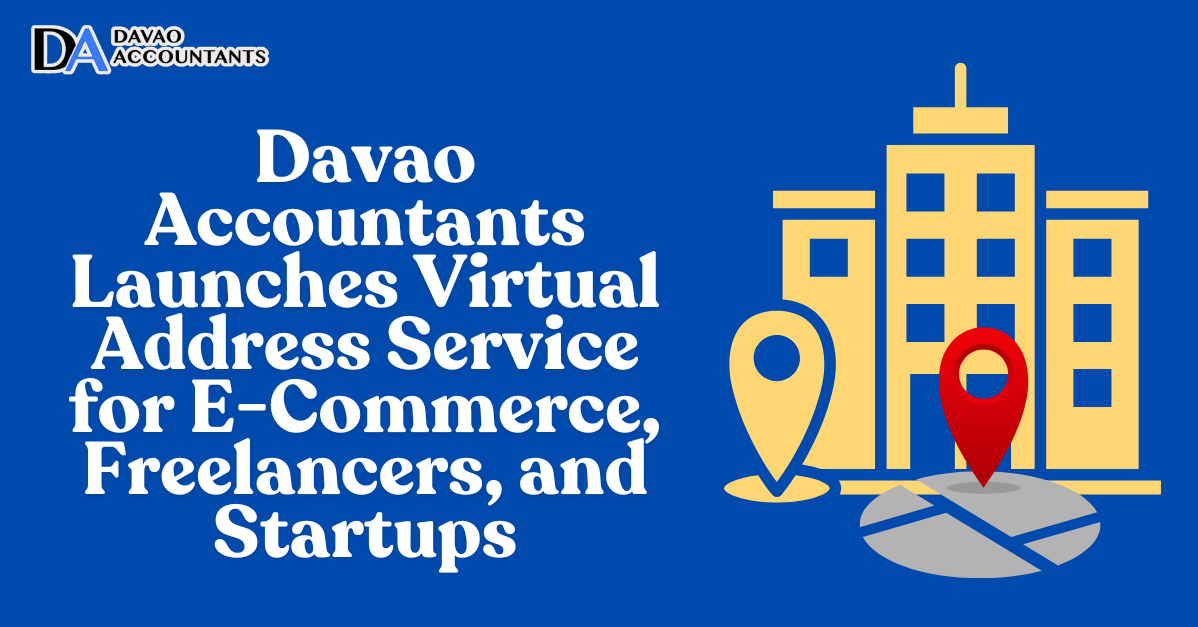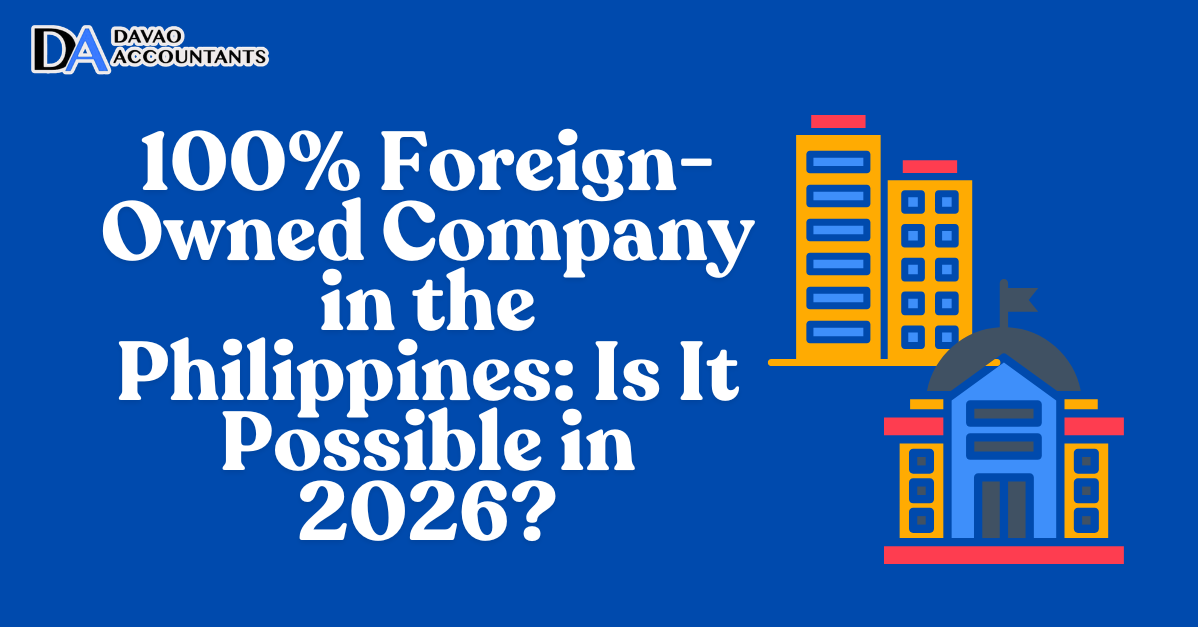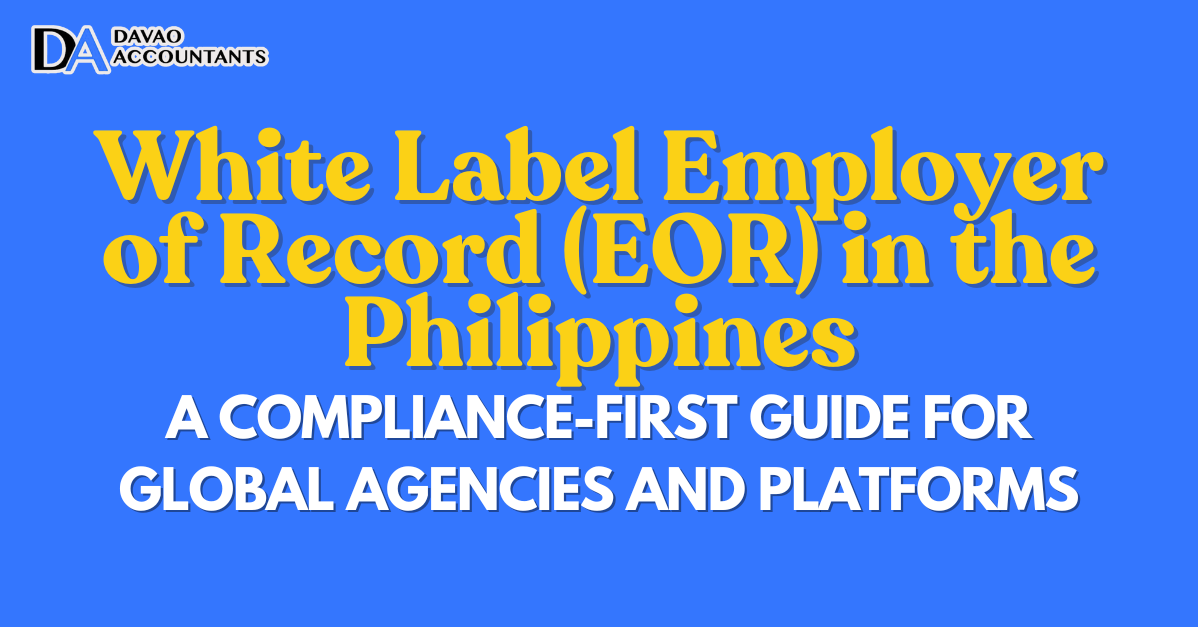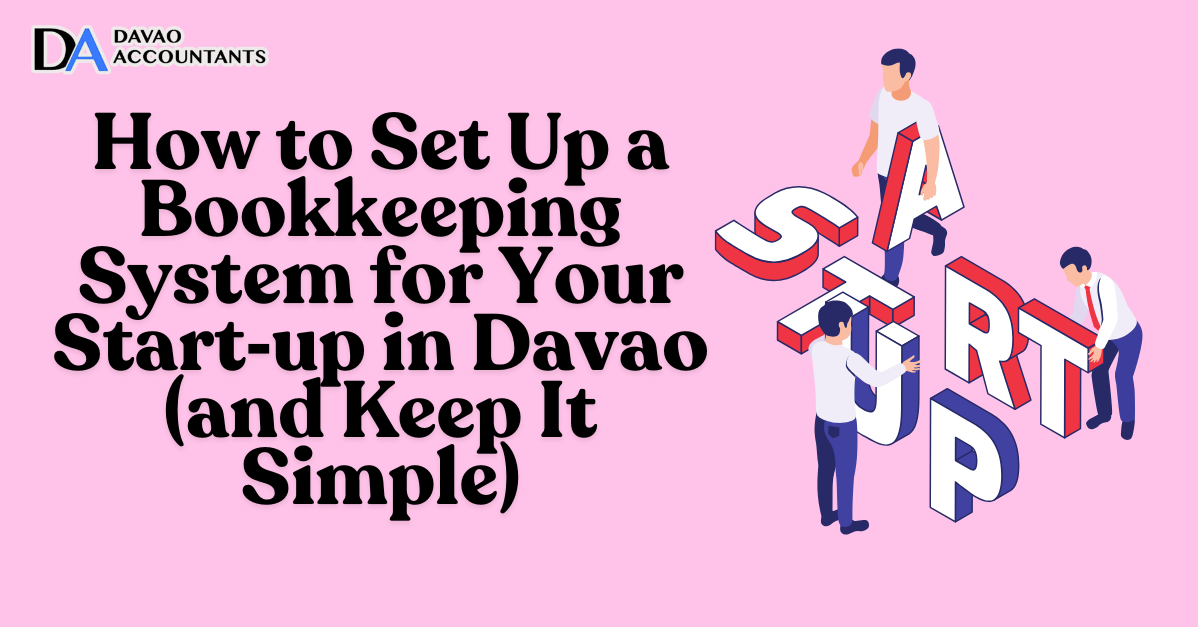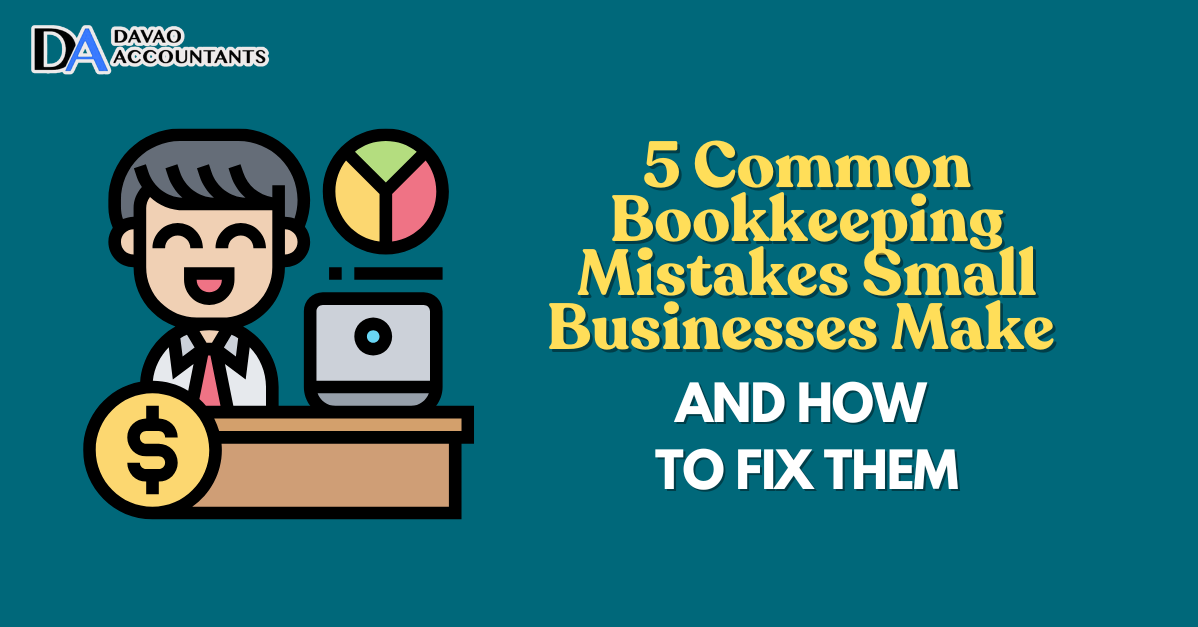Summary:
- Bookkeeping in the Philippines typically costs between ₱5,000 and ₱30,000 per month, depending on business size and complexity.
- Startups and SMEs can save money by outsourcing their accounting needs instead of hiring in-house accountants.
- Factors affecting price include volume of transactions, tax filings, and the need for financial reports.
- Monthly retainer packages are popular and include BIR compliance, bookkeeping, and tax filing.
- Davao Accountants offers flexible, affordable bookkeeping solutions for Philippine-based businesses and foreign-owned corporations.
Introduction
Bookkeeping is the financial backbone of every business; however, for startups and small businesses in the Philippines, determining the appropriate budget for it can be confusing. Should you hire a full-time bookkeeper or outsource the task? What services should be included? How much is too much?
This article breaks down the cost of bookkeeping in the Philippines, helping startups and SMEs understand what they’re paying for, what factors affect the rates, and how to choose the right service provider.
Why Bookkeeping Is Important for Startups and SMEs
Before discussing costs, it’s essential to understand why bookkeeping matters:
- It ensures compliance with the Bureau of Internal Revenue (BIR) and local laws.
- It gives business owners visibility over cash flow, expenses, and profit.
- It provides essential data for decision-making, forecasting, and fundraising.
- Clean books are necessary for audits, tax returns, and investor due diligence.
Without proper bookkeeping, businesses risk underpaying or overpaying taxes, missing deductions, and accumulating penalties.
Average Cost of Bookkeeping Services in the Philippines
Here’s a general breakdown of monthly bookkeeping service costs for Philippine-based businesses in 2025:
| Business Size / Need | Estimated Monthly Cost |
|---|
| Freelancers / Professionals | ₱2,500 – ₱5,000 |
| Microbusinesses (≤ ₱250K annual gross) | ₱5,000 – ₱8,000 |
| Startups / SMEs (₱500K – ₱3M annual gross) | ₱8,000 – ₱15,000 |
| VAT-Registered Entities | ₱12,000 – ₱25,000 |
| Growing SMEs / Multi-branch | ₱20,000 – ₱30,000+ |
| With Payroll or E-Commerce Integration | Add ₱2,000 – ₱8,000 |
Note: Prices may vary based on provider, location, and scope of services.
Factors That Affect Bookkeeping Rates
1. Volume of Transactions
More sales, expenses, and bank accounts = more work.
If your business issues 10 receipts a month, expect to pay less than a business issuing 500.
2. Tax Compliance Requirements
Your tax registration affects the complexity of bookkeeping:
- Non-VAT (Percentage Tax): Simpler to compute and file
- VAT-Registered: Requires monthly and quarterly VAT returns
- Withholding Taxes: More BIR forms and filing deadlines
- Annual Financial Statements: Required for corporations
3. Type of Business and Industry
Certain industries (e.g., retail, e-commerce, real estate) may have:
- High transaction volume
- Inventory tracking
- Complex income recognition or multi-branch operations
These may require more specialized bookkeeping support.
4. Software Used
Do you use:
- Manual Excel sheets?
- QuickBooks, Xero, or Wave?
- Point-of-Sale (POS) or e-commerce platforms?
Firms that offer digital bookkeeping may charge more but provide cleaner, automated reports and real-time data.
5. Reporting Needs
Some businesses only need compliance filing. Others require:
- Monthly financial statements
- Profit and loss reports
- Balance sheets
- Cash flow tracking
More reports = higher fees.
In-House vs. Outsourced Bookkeeping: What’s Cheaper?
Here’s a quick comparison of hiring full-time staff vs. outsourcing to a firm like Davao Accountants:
| Expense Item | In-House Bookkeeper | Outsourced Bookkeeping |
|---|---|---|
| Monthly Salary | ₱20,000 – ₱40,000 | ₱5,000 – ₱30,000 |
| Government Benefits | 13% – 16% of salary | Included in fee |
| Office Space & Tools | Your expense | Not applicable |
| Training & Oversight | Your responsibility | Included in the fee |
| Scalability | Limited | Flexible |
| Coverage During Leave | Needs replacement | Always covered |
Verdict: For most startups and SMEs, outsourcing is more cost-effective and scalable.
What’s Included in Bookkeeping Service Packages?
Most bookkeeping firms in the Philippines offer tiered packages based on your business type and needs. Here’s what’s typically included:
Basic Compliance Package
- BIR form preparation and filing (1701, 1702, 2551Q, etc.)
- Books of accounts update (Journal, Ledger, etc.)
- Monthly, quarterly, and annual tax filing support
- eBIRForms or eFPS submission
- Zero returns filing (if no income/activity)
Ideal For: Freelancers, professionals, and microbusinesses
Standard SME Package
- All of the above
- Monthly income and expense summary
- Financial statement preparation (for loans or investors)
- Year-end BIR filing with FS and Notes
- Support during BIR audit or LOA
Ideal For: Growing startups and registered corporations
Full-Service Bookkeeping + Advisory
- Everything in the standard package
- Business consulting and tax planning
- Payroll computation and reporting
- E-commerce integration or inventory tracking
- Monthly meetings or CFO-style reporting
Ideal For: Scaling SMEs, foreign-owned businesses, or startups with rapid growth
Special Bookkeeping Needs to Consider
For VAT-Registered Entities
- You must file monthly (Form 2550M) and quarterly (Form 2550Q) VAT
- Input tax vs. output tax must be properly reconciled
- VAT Relief Summary and SLSP may be required
For Foreign-Owned Corporations
- Must file audited financial statements (AFS) signed by an independent CPA
- Transfer pricing documentation may be required if related-party transactions exist
- May require reporting for both the Philippine and the home country jurisdictions
For E-Commerce Businesses
- Reconciliation of platform income (Lazada, Shopee, Shopify, Amazon, etc.)
- Recording of payment gateway fees (PayPal, Stripe, GCash)
- Tracking of logistics, refunds, and multi-currency income
Why Bookkeeping Is an Investment, Not a Cost
Instead of viewing bookkeeping as an expense, treat it as a strategic investment that pays for itself:
- Helps you track performance and profitability
- Prevents costly penalties for tax violations
- Supports future loan, grant, or investor applications
- Ensures business continuity and legal compliance
Poor record-keeping can hinder your growth, while effective bookkeeping enables you to plan, scale, and succeed.
Why Work With Davao Accountants
Davao Accountants offers flexible bookkeeping services tailored to:
- Startups and professionals
- SMEs scaling operations
- Foreign-owned corporations
- E-commerce sellers
- Service-based firms and agencies
What Makes Us Different:
- Transparent monthly pricing (no hidden fees)
- Local and national BIR compliance expertise
- QuickBooks-certified and Xero-ready team
- End-to-end service: from books to tax filing to audit support
- Optional add-ons: payroll, financial statements, corporate secretary, and more
FAQs About Bookkeeping Costs in the Philippines
Q: Can I do my own bookkeeping to save money?
A: Yes, but it’s risky. Errors in tax filing or failure to meet deadlines can result in penalties. Unless you’re trained, outsourcing is more efficient and accurate.
Q: Do I still need bookkeeping if my business has no income?
A: Yes. You’re still required to file zero returns and update the books of accounts even if you have no transactions.
Q: How often will I get reports?
A: Monthly reports are standard. More frequent reporting can be arranged based on your package and business needs.
Q: What if I’m behind on my books?
A: No problem. We offer catch-up bookkeeping services to bring your business up to date and ensure full compliance.
Looking for Affordable Bookkeeping Services in the Philippines?
Contact Davao Accountants today for a free consultation. We’ll help you choose the right bookkeeping package based on your current needs and future goals.

